For a conservation organisation based in Oudtshoorn, moments like this do not come often. And when they do, they are worth pausing for. This year, a South African conservation technology project founded by our CEO, Douglas Eriksen, was recognised on the global stage at the World Economic Forum in Davos. Project ZOA, or Zoological Open Architecture, was awarded the Startup Innovation Award for Top AI Sustainability Project during Davos Innovation Week 2026.
A Life Pulled From The Shadows
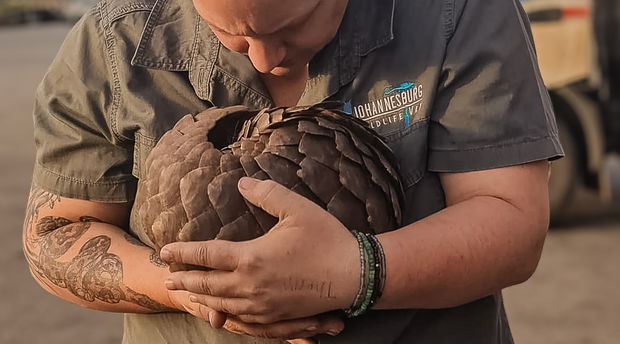
A young pangolin is alive today because a chain of people acted fast, paid attention and refused to look away. Her rescue, which took place recently near Beaufort West, shines a light on a growing crisis in South Africa and across the world: wildlife trafficking and the illegal pet trade. During a routine roadblock, SAPS officers searched a vehicle and found her hidden in a box in the boot. She had been poached. She was dehydrated, injured and near collapse. Johannesburg Wildlife Veterinary Hospital (JWVH) was alerted immediately. CapeNature moved fast, rushing her to a vet in Oudtshoorn. Under remote guidance from JWVH’s pangolin team, she was stabilised and prepared for emergency transport.
When her condition improved enough for travel, Airlink and Impact for Wildlife stepped in with urgent flight support. She was flown to Johannesburg, where JWVH’s dedicated pangolin unit admitted her for intensive care. She arrived in critical condition, but she is now stable. She remains fragile, yet she is fighting.
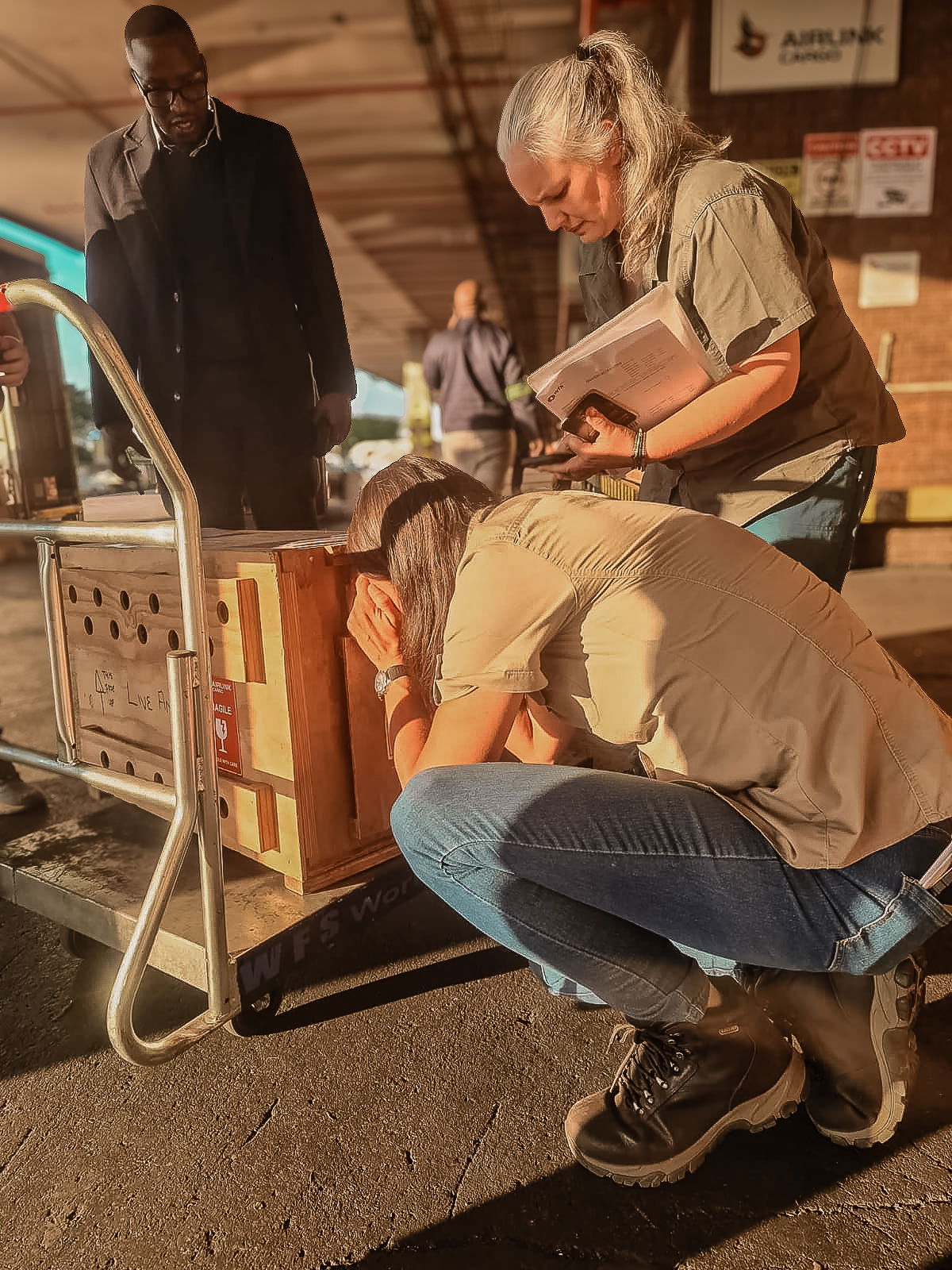 Her story is not unique. It is only one glimpse into a much larger issue.
Her story is not unique. It is only one glimpse into a much larger issue.
The Reality Behind Wildlife Trafficking.
Pangolins are the most trafficked mammals on Earth. They are hunted for their scales and meat. They are smuggled through hidden routes. They are treated as commodities rather than living beings. South Africa is part of this struggle. Every rescued pangolin represents many others that are never found.
This crisis extends far beyond pangolins. Owls, servals, tortoises, parrots, primates and countless other species are taken from the wild each week. Some end up in the illegal pet trade. Some are moved across borders for profit. Some are sold in secret markets. Most do not survive long enough to be rescued.
This is not conservation. This is exploitation.
Even when people think they are “helping”, removing wildlife from nature causes harm. Wild animals are not pets. They do not tame. What looks like calm is usually fear or shock. Their diets are specialised. Their stress levels are extreme. Their bodies are adapted to a specific habitat that no home environment can replace.
Pangolins, in particular, decline rapidly in captivity. They need thousands of wild ants and termites every day. They need quiet environments, natural rhythms and low stress. Without this, they suffer. Many die within hours.
Keeping wild animals encourages demand. Demand encourages poaching. Poaching empties ecosystems.
When one animal is stolen, a whole species pays the price.
This young pangolin survived because the right people acted at the right time:
• SAPS officers noticed something was wrong.
• CapeNature responded without hesitation.
• A local vet provided urgent stabilisation.
• Airlink and Impact for Wildlife ensured immediate transport.
• JWVH delivered the specialised care she desperately needed.
Because of them, she now has a chance to heal. With continued care and time, she may one day return to the wild where she belongs.
How You Can Help
• Never buy or keep wild animals as pets.
• Report any suspected wildlife trade.
• Support conservation organisations working on the frontlines.
• Share awareness within your community.
• Teach children that wild animals belong in the wild.
This pangolin’s rescue is a victory, but it is also a warning. The illegal pet trade is real. Wildlife trafficking is growing. And every choice we make either fuels the problem or helps stop it. Her survival reminds us of what is possible when compassion wins over cruelty, and when people choose to protect, not exploit, the wild creatures that share our world.
Further Reading
The Dodo once walked freely on the island of Mauritius. With no natural predators, it had no reason to fear humans. Within less than a century of human arrival, it was gone. Extinction is permanent. Once a species disappears, there is no recovery, no second chance, no future generations to protect. Every species on the Red List tells a story of pressure. Habitat loss. Human conflict. Climate stress. Decline that did not...
Some partnerships are built quietly and strengthened over time through consistency and shared purpose. Since 2018, Kraaibosch Nurseries in George has supported Cango Wildlife and the Cheetah Preservation Foundation as a benefactor. Their ongoing contributions help sustain the day to day work of conservation, from animal care and veterinary treatment to habitat management and long term programmes focused on threatened species, including cheetahs and other vulnerable wildlife in our care.












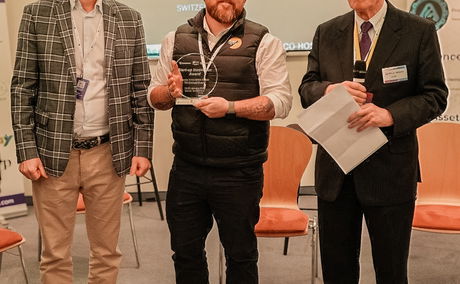
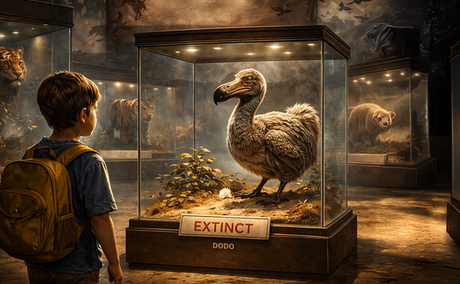
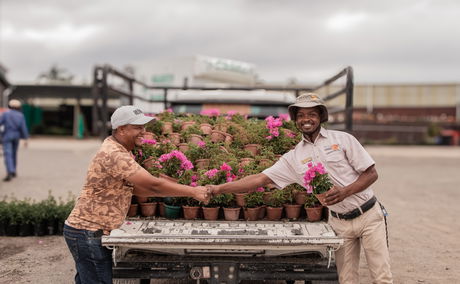
Share This Post